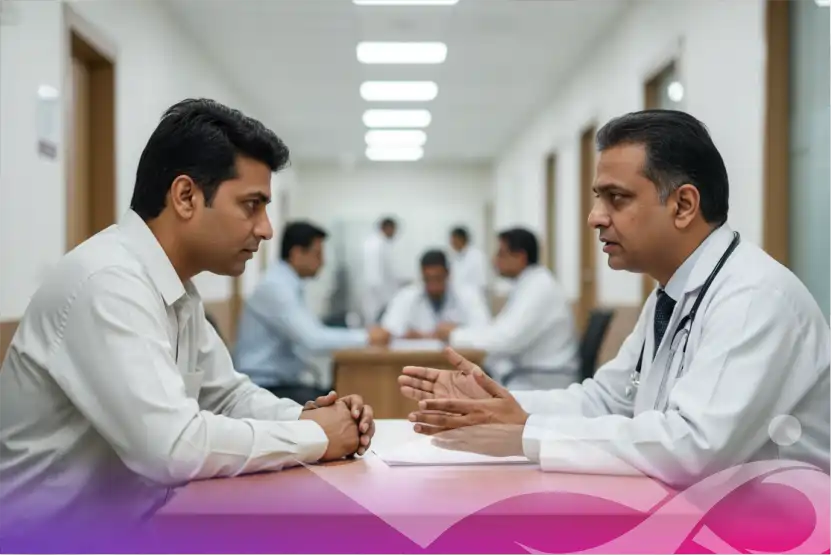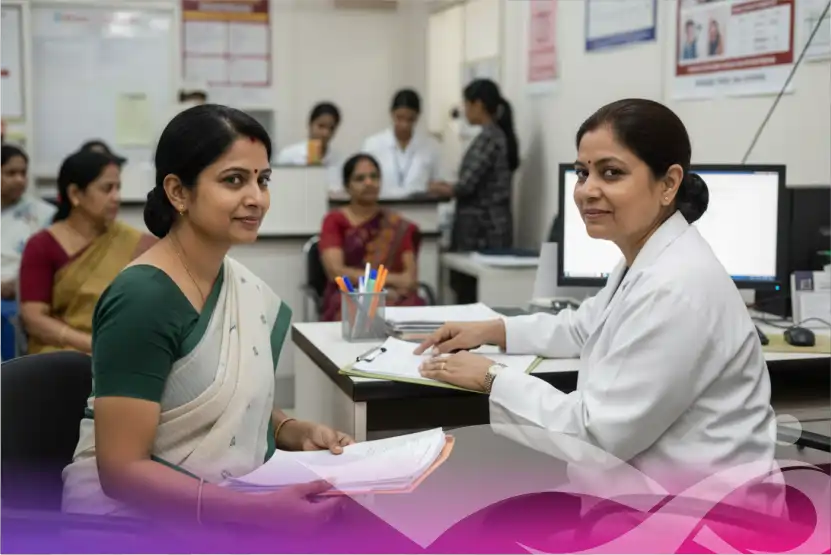Leukemia is cancer that affects the tissues that make blood, like the lymphatic system and bone marrow. When suspicions arise, understanding how leukaemia is diagnosed in adults becomes crucial for patients and their families. At the International Oncology Cancer Institute (IOCI), we use a variety of diagnostic methods to make sure that this complicated blood cancer is found quickly and accurately.
Recognizing & Diagnosing Leukemia Early
The diagnostic process usually begins with a full medical history and physical exam. Many adults with leukemia have vague early symptoms that can be mistaken for those of other illnesses. These include night sweats, frequent infections, constant fatigue, unexplained fevers, or easy bruising and bleeding. A physical exam may also show that the bones are sore, the lymph nodes are bigger, or the spleen is bigger. These general complaints often lead to blood tests, which are the first important step in diagnosis.
A Complete Blood Count (CBC) is usually the first screening test. This test, which is used a lot, counts platelets, red blood cells, and white blood cells. The CBC often shows strange results in leukemia, like low platelet counts (thrombocytopenia), low red blood cell counts (anemia), or high or low white blood cell counts. An abnormal CBC alone can't prove that someone has leukemia, even though it is suggestive.
If blood tests raise suspicion, the next crucial step is a bone marrow aspiration and biopsy. During this procedure, small pieces of solid bone marrow tissue (biopsy) and liquid bone marrow (aspiration) are taken from the hip bone. Then, these samples are sent to a lab that specializes in testing them. Pathologists look at bone marrow under a microscope to find abnormal leukemia cells (blasts), measure the marrow's cellularity, and figure out how many blast cells there are.
Advanced Testing: Pinpointing Leukemia Type for Precise Treatment
In addition to looking at the samples under a microscope, a number of advanced tests are done on the blood and bone marrow samples to find out what kind of leukemia it is:
- Cytogenetics: This test looks for problems with chromosomes in leukemia cells. Some types of leukemia have specific chromosomal abnormalities that can change the treatment options and the chances of survival.
- Fluorescence In Situ Hybridization (FISH): This is a more advanced test that can find even very small genetic changes.
- Flow Cytometry (Immunophenotyping): This test looks for specific proteins (markers) on the surface of leukemia cells. These markers help figure out the exact type and lineage of the leukemia, like myeloid or lymphoid.
- Molecular Testing: These tests look for specific gene mutations or genetic rearrangements in the leukemia cells to help guide targeted therapies.
Personalized Leukemia Treatment: From Chemotherapy to Cutting-Edge Clinical Trials
After a diagnosis, the type of leukemia (like Acute Myeloid Leukemia or Chronic Lymphocytic Leukemia) and its genetic profile will determine the course of treatment. Treatment often involves chemotherapy, and understanding how chemotherapy kills cancer cells is central to patient education. Chemotherapy drugs try to kill leukemia cells by attacking cells that are dividing quickly. They also try to do as little damage as possible to healthy cells. Some types of leukemia may also be treated with immunotherapy, targeted therapies, or stem cell transplantation.
Researchers are always finding new things, and the field of leukemia treatment is always changing. This is largely due to how clinical trials help cancer treatment. These studies test new drugs or combinations of drugs, which often means that patients can get the best treatments that aren't widely available yet. For many leukemia patients, especially those with rare subtypes or relapsed disease, clinical trials are a very important way to get better results.
At IOCI, our hematology-oncology experts use the latest diagnostic tools and work with people from different fields to make sure that adult leukemia is diagnosed quickly and correctly. This thorough diagnostic process is the first step in making a personalized and effective treatment plan that gives you the best chance of remission and recovery.
Consult us at any of our locations—across IOCI Noida, Greater Noida, Mumbai, Indore, Aurangabad, Agartala, Saharanpur, Kanpur and Jodhpur.












